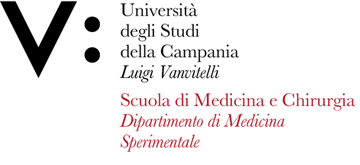Sandro SBORDONE
Insegnamento di CHIRURGIA E ASSISTENZA OFTAMOLOGICA
Corso di laurea in ORTOTTICA ED ASSISTENZA OFTALMOLOGICA (ABILITANTE ALLA PROFESSIONE SANITARIA DI ORTOTTISTA ED ASSISTENTE DI OFTALMOLOGIA)
SSD: MED/30
CFU: 2,00
ORE PER UNITÀ DIDATTICA: 24,00
Periodo di Erogazione: Secondo Semestre
Italiano
| Lingua di insegnamento | italiano |
| Contenuti | -Principi di chirurgia oftalmica: le fasi della procedura chirurgica, strumentazioni e suture, anestesia ed acinesia, complicanze; - chirurgia della cataratta; - chirurgia del glaucoma; - chirurgia corneale; - chirurgia del distacco di retina; - la vitrectomia; -chirurgia dell'orbita; - chirurgia dei muscoli extraoculari; - chirurgia della ptosi; - chirurgia plastica, ricostruttiva ed estetica; -la chirurgia refrattiva; - il laser ad eccimeri nella chirurgia refrattiva. |
| Testi di riferimento | Brad Bowling e C. Azzolini et al. Kansky. Oftalmologia clinica. EDRA 2017. Pagg. 928. |
| Obiettivi formativi | Al termine del corso, il discente deve conoscere i principi della chirurgia oftalmica, incluse le fasi delle procedure chirurgiche, le principali strumentazioni utilizzate e le tecniche anestesiologiche. L'insegnamento è finalizzato ad un percorso formativo al termine del quale il discente dovrà acquisire i concetti fondamentali relativi alla chirurgia della cataratta, del glaucoma, della cornea,della retina, dell'orbita, dello strabismo e cenni di chirurgia plastica e ricostruttiva. Al termine del corso, il discente deve conoscere le principali tecniche chirurgiche con particolare riferimento ad indicazioni e complicanze. Lo studente deve altresì conoscere il funzionamento delle principali strumentazioni chirurgiche e le indicazioni all'utilizzo. |
| Prerequisiti | Conoscenze di base di anatomia, fisiologia e fisiopatologia oculare |
| Metodologie didattiche | Lezioni frontali |
| Metodi di valutazione | Prova orale in cui saranno valutate le capacità di organizzare un discorso e di utilizzare lessico |
| Programma del corso | -Principi di chirurgia oftalmica: le fasi della procedura chirurgica, strumentazioni e suture, anestesia ed acinesia, complicanze; - chirurgia della cataratta; - chirurgia del glaucoma; - chirurgia corneale; - chirurgia del distacco di retina; - la vitrectomia; -chirurgia dell'orbita; - chirurgia dei muscoli extraoculari; - chirurgia della ptosi; - chirurgia plastica, ricostruttiva ed estetica; -la chirurgia refrattiva; - il laser ad eccimeri nella chirurgia refrattiva. |
English
| Teaching language | italian |
| Contents | - Principles of ophthalmic surgery: the phases of the surgical procedure, instruments and sutures, anesthesia and akinesia, complications; - cataract surgery; - glaucoma surgery; - corneal surgery; - retinal detachment surgery; - vitrectomy; - orbit surgery; - extraocular muscle surgery; - ptosis surgery; - plastic, reconstructive and aesthetic surgery; - refractive surgery; - the excimer laser in refractive surgery. |
| Textbook and course materials | Brad Bowling et Kansky. Clinical Ophthalmology: a systemic approach. EDRA 2017. Pagg. 928. |
| Course objectives | At the end of the course, the learner must know the principles of ophthalmic surgery, including the phases of surgical procedures, the main instruments used and anesthetic techniques. The course is aimed at a training course at the end of which the learner will have to acquire the fundamental concepts related to cataract surgery, glaucoma, cornea, retina, orbit, strabismus and signs of plastic and reconstructive surgery. At the end of the course, the learner must know the main surgical techniques with particular reference to indications and complications. The student must also know the operation of the main surgical instruments and the indications for use. |
| Prerequisites | Basic knowledge of anatomy, physiology and ocular physiopathology |
| Teaching methods | frontal lessons |
| Evaluation methods | Oral exam in which the abilities to organize a speech and to use scientific lexicon will be evaluated, to integrate the concepts learned during the course and make critical connections |
| Course Syllabus | - Principles of ophthalmic surgery: the phases of the surgical procedure, instruments and sutures, anesthesia and akinesia, complications; - cataract surgery; - glaucoma surgery; - corneal surgery; - retinal detachment surgery; - vitrectomy; - orbit surgery; - extraocular muscle surgery; - ptosis surgery; - plastic, reconstructive and aesthetic surgery; - refractive surgery; - the excimer laser in refractive surgery. |








